
As veterans of the journalism world, John Dougherty and David Pasztor know that digging deep is a key ingredient for getting a good story.
John MacCormack, San Antonio Express-News reporter, introduced Dougherty and named his many accomplishments as a journalist.
"Dougherty is a hack," said Pasztor, managing editor of The Texas Observer to a laughing audience on Sunday. The discussion began at 10:45 a.m.
Pasztor described The Texas Observer as a "liberal publication with attitude." The magazine published four stories that presented immediate action in the Texas legislature.
"None of the stories were a product of black-bagging," Pasztor said. "It was a product of cut-and-dry reporting."
Both journalists said the main difference between alternative press and daily publications are the parameters. They, unlike "dailies," have more time and can run more words in a story.
"The window of opportunity gets smaller and smaller," Pasztor said. "The luxury is time and space - not money. It's all about ideas and being aggressive."
He said that as a non-profit organization, The Texas Observer does not have to negotiate with industry and stockholders as do the daily publications. There is no worry rate of return and he described stockholders' expectations as "utterly unrealistic."
Dougherty agreed with Pasztor in the sense that time and aggressiveness are important in the role of a good journalist.
"I do nothing different than what I was taught in journalism school," Dougherty said. "Be a good, solid reporter."
He said his difference as an alternative journalist is he has an opportunity granting more time, which gets the stories no one else can.
Dougherty was awarded as Arizona's journalist of the year three times for long-term work on his series about secluded fundamentalist Mormon communities in Northern Arizona who were "misappropriating" the government's money to fund polygamist families with up to 50 children. He said the issue that interested him were underage girls being forced to marry into incest.
"I was faced with the challenge of a closed society," Dougherty said. "They believed if they talked to you, they were condemned to hell."
Dougherty stressed the importance of the public records law, and how it is important in handling almost any story.
"(In Mormon polygamy,) a man needs at least three wives to have eternal life," he said. "There were 40-year-old women who didn't know they could vote, have a bank account or a driver's license. It is a society where all social freedoms are crushed."
He said girls as young as 13 were pressured into marriage with older men. They were ignorant to the marriage until the day before, when assigned by the prophet. If they refused, the girls were kicked out of the community and "condemned to hell."
"These marriages were not civil marriages, but spiritual marriages," Dougherty said.
He said the mainstream Mormon church will not talk to him about the matter. They stopped polygamy in 1890 when the Supreme Court upheld Mormon church v. United States. Fundamentalists believe in polygamy now and claim that it is "freedom of religion."
Pasztor and Dougherty brought to light many good points in the field of journalism. I agree with Pasztor when he said being a good reporter means keeping your ears open. Even if you do not have the luxury of time and space, you can do that.
"There are more than enough people willing to read a 4,000 or 5,000 word story," Pasztor said. "There are a lot of smart readers. We are able to say 'those are the kind of readers we want.'"


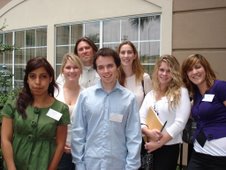

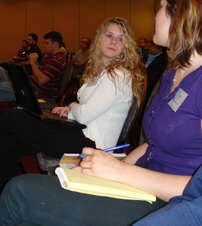


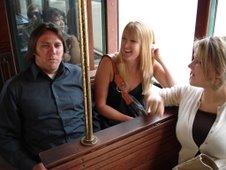



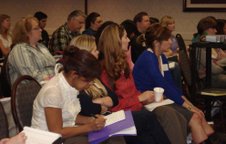

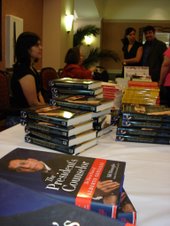
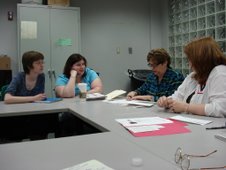

No comments:
Post a Comment